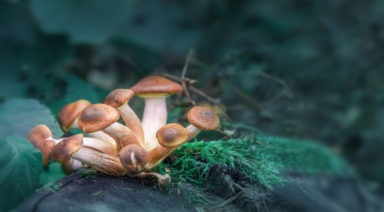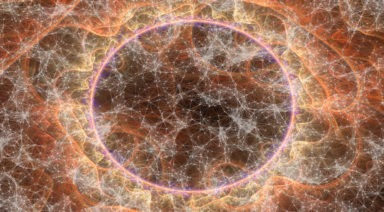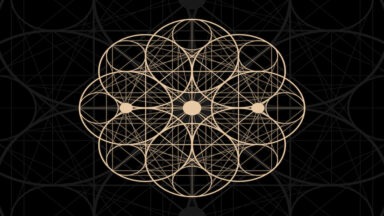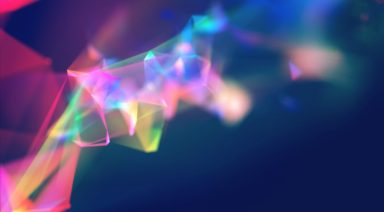Study Shows Psilocybin Promotes New Growth of Neurons in Brain

A major development in the treatment of depression shows psilocybin can actually grow connections inside the brain without a hallucinogenic trip.
As we have previously reported, researchers have found that psilocybin, the active ingredient in psychedelic mushrooms can reduce major depressive disorder in humans. but we have not known how it works or how long it will last.
Now a new study out of Yale University shows one dose of psilocybin in mice creates rapid and sustained connections between neurons.
Steven Grant Ph.D. Director of Research at the Heffter Research Institute, a non-profit organization a non-profit organization that promotes research into hallucinogens and the brain, has studied how drugs affect the brain for nearly 50 years.
“So, what they discovered, not only does a single dose of psilocybin produce the formation of neuronal growth as measured by what are called ‘spines,'” Grant said. “Spines are the little nubby protrusions off the branches of a neuron that are associated with the connections with other neurons, so presumably the more spines the more connections you have. And the study found that psilocybin not only produced growth in the number of spines, but it persisted over a month. So that’s remarkable — one dose produces this long-lasting change in the ability of the neurons to form new connections.”
How does psilocybin creating spine formation work to relieve depression?
“The jump between spine formation and relief of anxiety is a jump; it’s a leap,” Grant said. “So, we can’t fill in every single step there, but the idea is that these drugs are increasing the ability of neurons to communicate with each other and form new connections, which will then form new patterns of brain activity, which will then form new patterns of behavioral activity. So, if you think of depression for example as being stuck — you’re stuck in a place that’s aversive and hedonic, you have low mood — how do you get out of that? Especially if you don’t think anything is worthwhile. What this study suggests is there is a neurobiological process that psilocybin kicks off that starts with the formation of new connections that then will presumably allow the person to engage in new forms of behavior and not be in the hole that they were in.”
By blocking the receptor in the brain that receives the psychedelic effects of psilocybin, the researchers made another, perhaps more important, discovery, and settled an ongoing debate.
“There is a debate in the field whether the therapeutic effects depend on the psychedelic effects, and this is an active controversy in the field. This study suggests that spine formation is related to the therapeutic effects and can occur in the absence of a measure of the psychedelic effects, insofar as we can measure it in mice. This study is remarkable because it’s a step in showing that you can get some degree of disassociation between the psychedelic effects and the therapeutic effects,” Grant said.
As someone who has studied this for nearly 50 years, what does Grant hope these discoveries mean for the future of psychedelics to treat depression?
“This will result in the use of drugs that will have a therapeutic effect very rapidly, that the person doesn’t have to be on a chronic drug regimen, and that it produces persistent therapeutic effects,” Grant said.
Although the findings of this study were remarkable, Grant cautions that this study was done on mice. Animal studies often translate to humans, but not always. Much more testing remains to be done, and it will be hard to replicate the same results in humans, but this could be a major step forward in understanding how plant medicine can heal us.
Ketamine Therapy Proves Powerful For Treatment-Resistant Depression

A powerful FDA-approved anesthetic drug once used mainly in operating rooms and on the battlefield is quickly gaining ground as one of the most promising therapies for treatment-resistant mental health conditions.
First discovered as an anesthetic in the 1950s, ketamine has been used in the treatment of a wide range of physical conditions, especially pain management. Starting in the early 1970s, doctors began to find that it can also be very effective in alleviating mental health issues such as depression, anxiety, PTSD, and addiction. Today it is ever more frequently being studied and legally used as an off-label medication to manage conditions that are particularly resistant to treatment with conventional pharmaceuticals.
The latest in a series of recent studies has found that ketamine can quickly and dramatically decrease chronic and suicidal thoughts. Dr. Naveen Thomas is a psychiatrist who has been using ketamine in his practice for years.
“I and many of my colleagues have of course had tremendous success in using ketamine in people who are really suffering from depression. I’ve had a lot of success in treating people with Post-traumatic Stress Disorder,” Dr. Naveen said.
“And some of these folks have spent years and years doing absolutely the best they could using such a wide variety of the conventional treatments, be they various medication treatments, be they various forms of psychotherapy. We’ve seen really wonderful effects.”




































